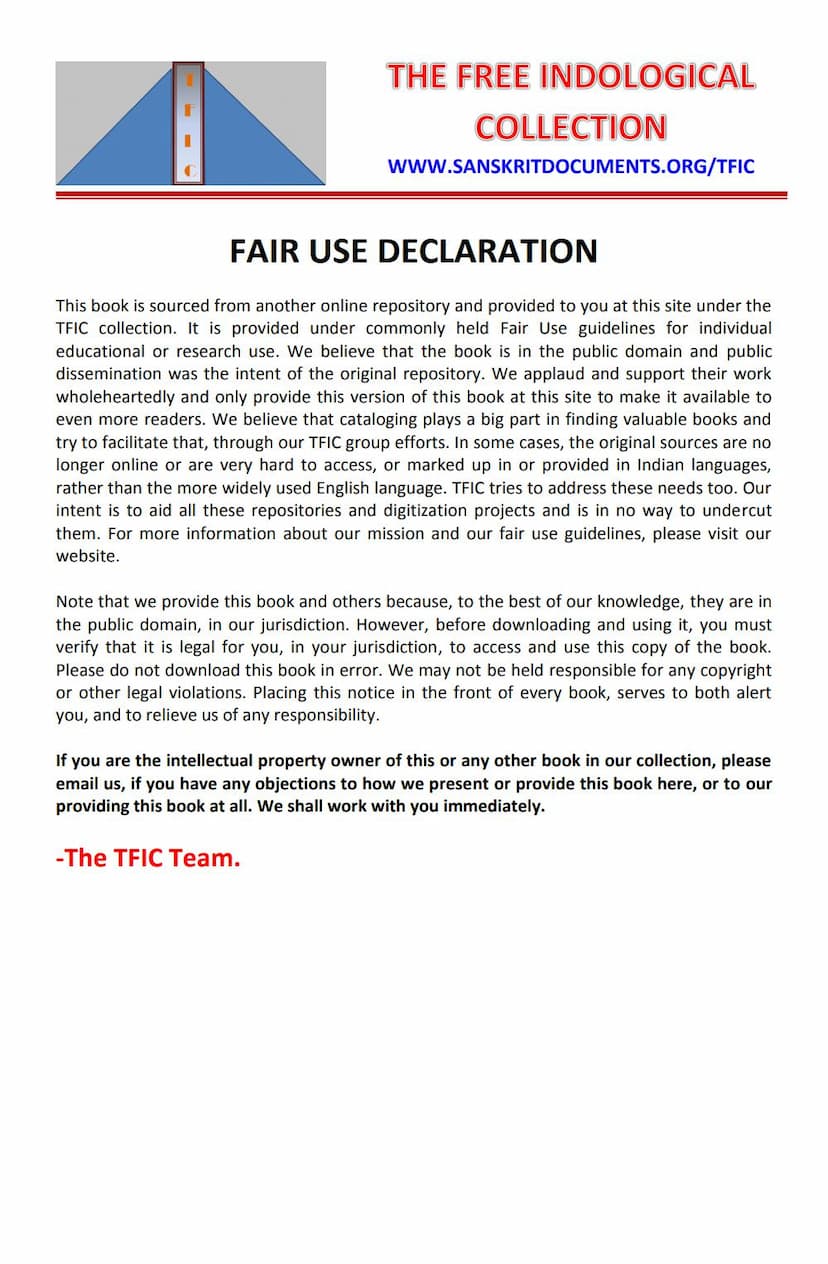Varttaman Chaturvinshati Jina Pooja
Added to library: September 2, 2025

Summary
This Jain text, titled "Varttaman Chaturvinshati Jina Pooja" (Worship of the Present Twenty-Four Tirthankaras), authored by Bakhtavarsinh and published by Bakhtavarsinh, is a devotional work focused on the veneration of the twenty-four Tirthankaras of the present era in Jainism. The text is part of the Digambra Jain Religious Grantha Series, and the catalog link provides access to a digital version of this work.
The book is structured as a collection of prayers and rituals for worshipping each of the twenty-four Tirthankaras, beginning with the first Tirthankara, Rishabhanatha (also known as Vrishabhanatha or Adinatha), and concluding with the twenty-fourth Tirthankara, Mahavira.
Here's a breakdown of the key elements found throughout the text:
-
Mangalacharan (Invocation): The text begins with invocations and prayers to the Tirthankaras and the Goddess of learning (Saraswati) to ensure the smooth writing and recitation of the Pooja. This section highlights the reverence for the Tirthankaras as guides and sources of spiritual liberation.
-
Praise of the Tirthankaras: Throughout the text, the Tirthankaras are described with attributes such as being the benefactors of the world, followers of vows, worshipped by gods and celestial beings, possessors of infinite knowledge and power, and destroyers of eighteen types of sins and karmas. They are depicted as residing in pure and sublime states, adorned with celestial regalia like umbrellas, chauris (fly-whisks), and seated on lion thrones under the Ashoka tree.
-
Structure of Each Tirthankara's Pooja: Each Tirthankara's Pooja generally follows a similar pattern:
- Aavahan (Invocation/Summoning): Inviting the Tirthankara to be present.
- Sthapan (Installation): Establishing their presence.
- Sannidhikaran (Bringing Near): Making their presence felt in the ritual space.
- Ashtak (Eight Verses): This is a core part of the worship, where devotional offerings are made. Each offering is typically accompanied by a specific mantra and an associated benefit. The standard offerings include:
- Jal (Water): For purifying and removing birth, death, old age, and disease.
- Chandan (Sandalwood): For removing worldly suffering and the heat of samsara.
- Akshat (Unbroken Rice): For attaining imperishable status.
- Pushp (Flowers): For destroying the arrows of Kamadeva (the god of love, representing desires).
- Naivedya (Food Offering): For removing hunger and disease.
- Deep (Lamp): For dispelling the darkness of delusion and ignorance.
- Dhoop (Incense): For burning away the eight karmas.
- Phal (Fruit): For attaining the fruit of liberation.
- Argh (A special offering, often a combination of substances): A comprehensive offering to attain an unblemished state.
- Panchkalyanak (Worship of the Five Auspicious Events): Each Tirthankara's Pooja includes verses dedicated to their five auspicious life events: Garbha-Kalyanaka (conception), Janma-Kalyanaka (birth), Tap-Kalyanaka (asceticism), Jnana-Kalyanaka (enlightenment), and Nirvana-Kalyanaka (liberation).
- Jaimala (Garland of Victory): A series of verses often in a narrative or praise-filled style, recounting the Tirthankara's life, virtues, and accomplishments. These often include details about their birth, parentage, lifespan, initiation, austerities, attainment of omniscience, preaching, and ultimate liberation.
- Ashirvad (Blessings): Concluding verses offering blessings to those who perform the Pooja or read the text, promising prosperity, happiness, and eventual liberation.
-
Attributed Author: The text explicitly states that it is authored by Bakhtavarsinh. The concluding remarks also mention "Bakhtavar Singh" and "Ratnalal" in connection with the composition of the text, suggesting a collaborative or related effort.
-
Language and Style: The text is primarily in Hindi, written in a poetic and devotional style, employing various meters and rhyming schemes common in religious literature. The language aims to evoke reverence and devotion towards the Tirthankaras.
-
Fair Use Declaration: The initial pages include a "Fair Use Declaration" from "The Free Indological Collection" (TFIC) hosted on www.sanskritdocuments.org. This declaration explains that the book is provided for individual educational or research use under Fair Use guidelines, believing it to be in the public domain. It emphasizes the intention to make valuable books accessible to a wider audience.
In essence, "Varttaman Chaturvinshati Jina Pooja" is a comprehensive guide for the ritualistic worship of all the Tirthankaras of the present age in Jainism. It serves as a devotional manual, offering prayers, hymns, and rituals to foster spiritual connection and aspiration for liberation, all attributed to the author Bakhtavarsinh. The text aims to provide a structured and meaningful way for devotees to remember and honor these significant spiritual figures.